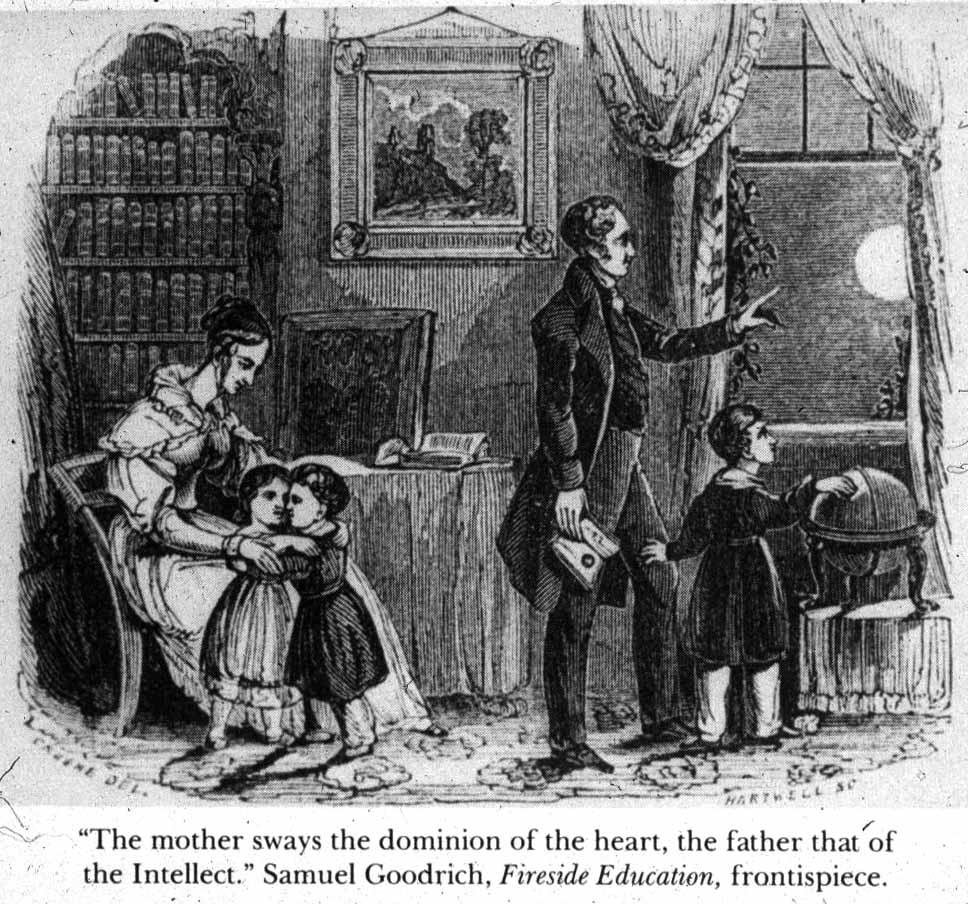I have an INTJ personality type, which means that I function best on my own. Given that my wife and I need only one salary in order to make ends meet, the ideal situation for me is one in which I stay home and my wife goes to the office. I become the housekeeper and my wife the salary earner.
My wife would also have liked to stay at home rather than go to the office, but she's not fuzzed about the situation. She's happy that someone takes care of the house and kids while she's away. Without me to take care of things, she would have had to seek other employment because her office hours are irregular and often long, making it impossible to combine her work with domestic concerns.
Having me at home to keep an eye on things allows my wife to make more money by taking on more responsibilities at work, so my domestic activities aren't just conveniences. They contribute to my wife's freedom to work as she pleases.
This in itself is proof that the modern arrangement of having two salary earners per household is neither convenient nor particularly profitable. Two salaries doesn't mean twice the income. Once stress and inconveniences are calculated into the final figure, it's clear that there's little gained by having two salaries.
This is particularly true in countries with progressive income tax. Even one salary may be too much fuzz to be worth it, as was the case when I still worked long hours in Norway. Cutting down on the hours by 20% resulted in no more than 10% reduction in my take home salary, and I got a whole extra day off. No wonder many people choose to cut down on the number of hours spent at work.
The idea that having two salary earners per household is somehow empowering is a political fiction created in order to generate more taxable income for the state. Dual incomes are not empowering. They're not signs of wealth and engagement in society. Dual incomes are by and large signs of poverty. The rise of such arrangements over the past decades indicate a drop in affluence rather than a boom.
There should ideally be one housekeeper and no more than one salary earner per household, and it's best for the kids to have mother at home during their first five years of growing up. However, once kids get a little older, fathers are just as good at bringing kids up as mothers. They may even be a little better in that they tend to promote independence and a sense of adventure. Fathers tend to promote science and craft while mothers promote security and care.
Without a parent at home, education of children becomes entirely a matter of institutional learning. Parents become secondary to the educational system, which is another reason why politicians tend to promote the double income family model. Not only do they get to tax an extra salary, but they get to indoctrinate the children as well. It's a great arrangement for the state, and something to be avoided by anyone who wants their children to grow up happy and confident.
I must admit that I wouldn't have been as comfortable in my position as the stay at home parent if it wasn't for the fact that I receive a reasonable fixed income every year, so I understand that it may seem overly daring to rely on nothing but a single income. But I would have insisted on my current arrangement with my wife even if we had no fixed income. The only difference would have been a willingness on my part to be the salary earner if that turned out to make more money than my wife is currently making.
The role reversal that we have in our household doesn't include a reversal of our decision making hierarchy. The fact that I'm the housekeeper doesn't affect my position as the head of the household. I'm still the final decision maker when it comes to things that affect the family as a whole. This isn't simply because I'm a conservative soul, but due to the fact that the man should always be the head of the household. It's the perfect arrangement for reasons that I've explained before.
My wife and I are happy in the way we've arranged things for ourselves, and I suspect many others may benefit from similar arrangements because I don't think we're unique in the way we experience the world.
The trick is to value family and time correctly, and to think outside the box. We need to be open to the possibilities inherent in your relationships, and take full advantage of what's there. Key to success is a healthy relationship with our partner, and a refusal to go along with the myths spewed by the state.
 |
| Fireside education |
By Transferred from en.wikibooks to Commons by Adrignola using CommonsHelper. Originally uploaded to en:Wikipedia in November 2006 (log) by Darentig (talk)., Public Domain, Link
No comments:
Post a Comment